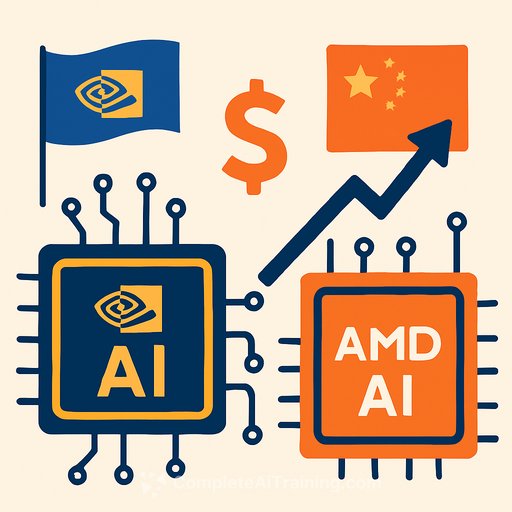U.S. Government to Take Cut from Nvidia and AMD A.I. Chip Sales to China
Nvidia and Advanced Micro Devices (AMD) will pay the U.S. government 15 percent of their revenue from selling artificial intelligence (A.I.) chips to China. This unusual financial arrangement was reached with the Trump administration and marks a rare example of the government directly benefiting from private tech sales abroad.
While the Trump administration publicly announced approval for Nvidia to sell a specific A.I. chip model, the H20, to China, it did not immediately issue the necessary licenses to enable those sales. Despite this, the companies have agreed to the revenue-sharing deal as part of the broader licensing process.
What This Means for Sales Professionals
For sales teams working with semiconductor or tech hardware products, this development highlights how geopolitical and regulatory factors can directly affect revenue models. In particular, international sales strategies may now require closer attention to government policies that could impact pricing, profit margins, or contract terms.
- Revenue Impact: A 15% government cut reduces net income from China sales, requiring adjustments in forecasting and target setting.
- Licensing Delays: Sales cycles might extend due to delayed government approvals, affecting pipeline management and client negotiations.
- Compliance Awareness: Teams should stay informed on export controls and government agreements to avoid legal or financial risks.
This situation serves as a reminder that sales professionals in tech must monitor policy changes and factor them into pricing and contract discussions. Understanding the intersection of sales and government regulation is becoming essential for accurate forecasting and effective client communication.
For those interested in deepening their knowledge of A.I. technologies and market trends, exploring specialized A.I. training courses can provide valuable insights and skills.
Your membership also unlocks:






